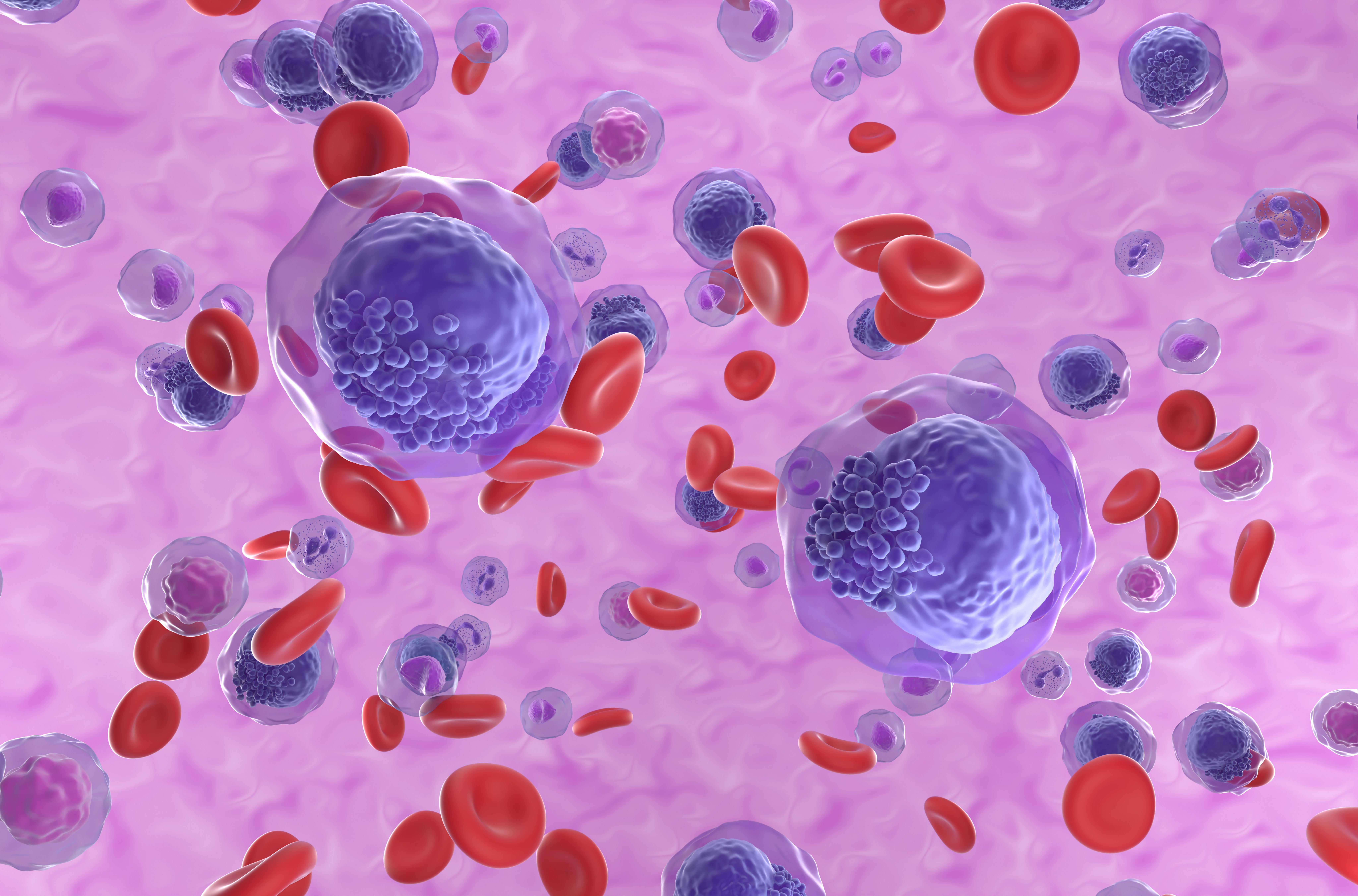LYT-200 Gains FDA Orphan Drug Designation in Acute Myeloid Leukemia
The FDA granted orphan drug designation to LYT-200, a drug being investigated for treating acute myeloid leukemia.

- LYT-200 is an antibody that targets galectin-9, a protein involved in leukemia cell growth and immune suppression.
- It is being tested for acute myeloid leukemia (AML), solid tumors, and myelodysplastic syndrome (MDS).
- There are 2 ongoing phase 1 trials for LYT-200 (NCT04666688; NCT05829226). One studies it alone or with other drugs in solid tumors, and the other studies it in relapsed/refractory AML or high-risk MDS.
An orphan drug designation from the FDA has been granted to LYT-200 for the treatment of patients with AML.1
"Orphan drug designation from the FDA validates our belief that targeting galectin-9 with LYT-200 is a novel, promising approach that may offer patients a better tolerated, more effective treatment," said Aleksandra Filipovic, MD, PhD, head of oncology at PureTech Health, in a press release.
LYT-200 is a fully human IgG4 monoclonal antibody currently under investigation for the treatment of patients with locally advanced/refractory solid tumors, AML, and MDS. The agent works to target galectin-9, which is a potent oncogenic driver in leukemia cells and an immunosuppressive protein.
Previously, the FDA granted an orphan drug designation to LYT-200 for the treatment of patients with pancreatic cancer in November 2021.
Illustration of acute myeloid leukemia cells: ©LASZLO - stock.adobe.com

Two phase 1 trials are evaluating the agent. The first is evaluating LYT-200 alone or with chemotherapy or tislelizumab (Tevimbra; BGB-A317) in patients with relapsed/refractory, locally advanced or metastatic solid tumors, and the second is evaluating LYT-200 for the treatment of patients with relapsed/refractory AML or high-risk MDS.
"The current long-term survival rates of patients with relapsed/refractory AML are very poor, and there remains a tremendous unmet need for more effective therapies," said Amir Fathi, MD, director of the leukemia program at Massachusetts General Hospital in Boston and lead investigator of the trial, in a press release.1
Initial data from the first phase 1 study of the agent by itself and in combination with tislelizumab were presented at the 2023 ESMO Immuno-Oncology Congress. Here, an acceptable safety and tolerability profile was observed with LYT0200, both alone and when given in a combination. Among patients with relapsed/refractory head and neck cancer, there was also preliminary antitumor activity observed.
This open-label, multicenter study is assessing the safety, pharmacokinetics (PK), and antitumor activity of LYT-200.3 Investigators are evaluating the primary end points of treatment-emergent adverse events, incidence of dose-limiting toxicities, progression-free survival, and overall response rate. Secondary end points include PK and pharmacodynamics.
This study has an estimated completion date of September 2024.
The second study of LYT-200 is evaluating the agent in those with relapsed/refractory AML or high-risk MDS.4 Patients are eligible to enroll in the study if they are aged 18 years or older and have an ECOG performance status of 2 or less.
Patients with AML must have primary or secondary disease that has relapsed or is refractory to at least 1 prior line of therapy. There must be no standard therapy available for these patients, and while prior allogeneic stem cell transplant is permitted, it is not required. Patients with high-risk MDS also must have relapsed/refractory disease following at least 1 line of treatment per the revised International Prognostic Scoring System and no standard treatment available to them.
The study utilizes a dose-escalation design where patients are being treated with LYT-200 alone or in combination with venetoclax (Venclexta) and/or azacitidine or decitabine. Both arms of the study are receiving LYT-200 intravenously over 60 minutes once per week.
Among those in the combination arm, patients will be given venetoclax at a dose of 100 mg on day 1, a dose of 200 mg on day 2, and a dose of 400 mg on days 3 to 28 of each cycle, and/or 75 mg/m2 of subcutaneous azacitidine for 7 days per cycle or 20 mg/m2 of decitabine for 5 days per cycle.
The primary end points are safety and dose-limiting toxicities, and secondary end points include PK and rates of disease responses, time-to-event end points, and hematological improvements.
REFERENCES:
1. PureTech receives orphan drug designation for LYT-200 in acute myeloid leukemia. News release. PureTech Health. March 13, 2024. Accessed March 13, 2024. https://tinyurl.com/mt7tewbw
2. Falchook GS, Papadopoulos K, Parikh A, et al. A phase I dose escalation and expansion trial of LYT-200, a Galectin-9 antibody +/- tislelizumab. Ann Oncol. 2023;20(suppl 1):100589. doi:10.1016/iotech/iotech100589
3. LYT-200 alone and in combination with chemotherapy or tislelizumab in patients with locally advanced or metastatic solid tumors. ClinicalTrials.gov. Updated January 25, 2023. Accessed March 13, 2024. https://clinicaltrials.gov/study/NCT04666688
4. A phase 1 study with LYT-200 in patients with relapsed/refractory acute myeloid leukemia (AML), or with relapsed/refractory, high-risk myelodysplastic syndrome (MDS). ClinicalTrials.gov. Updated January 11, 2024. Accessed March 13, 2024. https://clinicaltrials.gov/study/NCT05829226
FDA Clears Phase 1 Study of Lomonitinib for R/R AML Treatment in the US
June 10th 2024An investigational new drug application for lomonitinib has been cleared by the FDA for FLT3-mutated relapsed/refractory AML treatment, and a phase 1 trial evaluating the agent will begin in the US.
Read More